Cate Russell-Cole's Blog, page 36
June 4, 2013
Passing on a Facebook Page: Authors for Oklahoma
 Reblogged from Self-Published Authors Helping Other Authors:
Reblogged from Self-Published Authors Helping Other Authors:
I know this is coming in late, but I'm passing this along to those interested. This is an effort to help the victims of the tornadoes in Moore, Oklahoma. Here's the Facebook page to learn more.
Please help. The area has been hit by more tornados and rebuilding will be a long process. Let's all get together and do what we can.
Ten Lessons Learnt On Becoming An Author: Alberta’s Adventure
 In the few years since I began this last adventure of mine, it occurs to me I have done nothing but learn. Here are a few lessons learnt:
In the few years since I began this last adventure of mine, it occurs to me I have done nothing but learn. Here are a few lessons learnt:
1) Writing is the easy part. Really, it is.
 2) After that comes ‘editing.’ Is a quick read through should be enough? No. Be prepared to read, re-read, put aside, read, re-read. Despair, look again, line by line, word by word, read, tinker, eliminate, add, change. Despair and begin again. When you are sure, very sure, all is well, send it off, received the proofs, be prepared to find a glaring mistake on the first page!
2) After that comes ‘editing.’ Is a quick read through should be enough? No. Be prepared to read, re-read, put aside, read, re-read. Despair, look again, line by line, word by word, read, tinker, eliminate, add, change. Despair and begin again. When you are sure, very sure, all is well, send it off, received the proofs, be prepared to find a glaring mistake on the first page!
3) The first time I had ever tried to write a book was 20+ years ago. I ignored all advice about writing what you know. I had an idea, set it on the east coast of USA (I had never been there, and it was before Google Earth), using the Police Force as its setting. I know nothing about the police here, let alone across the pond. Still I did get some great holidays over there doing my research. That story lingered in a box in the attic as a mistake! With Ellen’s Tale, at least I was writing on a subject I have some passion for and knowledge of. It is a good piece of advice, write what you know: it is amazing what we all know.
4) This old lady was brought up with a strict understanding one sorted problems oneself. You did not seek or accept help from others. Yes, well, maybe. Twenty years travelling the world alone I learnt the limitations of that upbringing. Sometimes one needs help. Sometimes others enjoy helping. It is no different in writing. Hours spent living in another world, speaking only to make-believe folk, is an isolating experience. What cyberspace has allowed is for all of us isolated people to make contact, and to receive advice, support and counsel. I found it scary at first but, so much generosity was offered. Ask and receive graciously, give willingly. “Writers rock” as they say.
5) The second book is harder than the first! But surely the third? Nope, no easier. Maybe as time goes on the editing becomes easier, but after the first, there are expectations. Dreadful word that. It hangs like that confounded sword, poised and ready to strike. If one is lucky and people enjoyed that first book, the sense of foreboding grows like a pernicious weed. Failure! Possibly.
6) Be prepared to have Despair come visiting. An unwelcome guest who never seems to know when to vanish. Have a deadline? “You’ll never get there,” Despair whispers. Read a fantastic book written by someone else? “Yours is rubbish,” chuckles Despair. Write a steaming love scene, a heartbreaking death scene? Despair rolls on the floor laughing at your attempts.
Sometimes one need to be firm, to be strong! To banish said Despair stamp your foot, point your finger and in ringing tones declare, “darken my door no more, you misbegotten cur.”
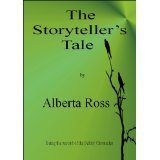 7) You will not be master in your own house. Characters are renown for taking matters into their own hands, if they are not satisfied with the author’s attempts. Plots have been known frequently to vanish and be replaced by changelings, who romp home with the glittering prize. Master of your novel’s fate: think on, poor deluded one.
7) You will not be master in your own house. Characters are renown for taking matters into their own hands, if they are not satisfied with the author’s attempts. Plots have been known frequently to vanish and be replaced by changelings, who romp home with the glittering prize. Master of your novel’s fate: think on, poor deluded one.
8) Be prepared for long hours hunched over the machine, into the small hours. The deadline is a a few days hence. The manuscript polished to a shine which will blind. The hours of muttering, of sorrow when heartbreakingly beautiful words are deleted. The boredom of checking spacing and font sizes. The anguishing over which cover A or B or would a C be better? The desperation when a satisfactory blurb eludes you. All that remains is to upload to Lulu or some such site, convert to Kindle, upload to the Smashwords meatgrinder. No problem. Sure? The transition from one software to another can cause earthquakes, tsunamis or maybe just cracks in your baby. Check, check and tear your hair out.
9) There will be times, when you ache to hurl machines through windows, howl at the new moon, chew edges of carpets and generally ‘lose the plot’. Stress points include:
Blank page, blank mind: this is common.
Computer crashes, loss of the last 10,000 words of perfection.
Unexpected, unwanted guests arrive, complete with chocolates and schemes of days out with you.
Most importantly:
10) Enjoy, enjoy, enjoy. Finishing a book is the most amazing, addictive feeling. Your name is in print, your book is on bookshelves, in the library, on reading groups lists, It is exhilarating. There is nothing quite like it.
Holding the first ‘proper book’ in your hand is like childbirth, the pleasure and joy of it, drives all thought of pain, anguish and despair from your head and heart.
Time for a second go?

Follow Alberta Online
Twitter: https://twitter.com/albertaross
Facebook: https://www.facebook.com/author.alberta.ross
This blog post is Copyright Alberta Ross 2013. All rights are reserved Internationally. You may not reproduce it in any form, in part of whole, without the author’s prior written permission. That includes usage in forms such as print, audio and digital imaging including pdf, jpg, png etc. A fee may be requested for re-use if it is for a commercial venture.
Filed under: Guest Post, Writing Tagged: Alberta Ross, author, books, challenge, creativity, encouragement, fiction, goals, Indie publishing, inspiration, learning, motivation, passion, plot, problem solving, success, support, writer, writing








June 3, 2013
IndieReCon: Marketing Week Coming Up
 Reblogged from Hunter's Writing Journey:
Reblogged from Hunter's Writing Journey:
IndieReCon is the website which earlier in the year provided a full FREE weekend of online workshops (blog posts) on many subjects relevant to authors.
Next week there is to be a Marketing Mania Week, with posts / workshops up from the likes of CJ Lyons (Build Your Brand), Georgia McBride (National Media), KP Simmons (Reading the Teen Markets) and…
This is a must for all Indie authors. Thanks Hunter! You're a goldmine of great information.
Fuelling Conflict In Fiction
 Have you ever seen a misunderstanding in a film or book and thought, “if only they’d said it this way, that would never have happened!”
Have you ever seen a misunderstanding in a film or book and thought, “if only they’d said it this way, that would never have happened!”
As a fiction writer, plot twists need to be built into story lines. One way to enable setbacks in a story is to build in miscommunication between the characters. That can be easy to write, however, if you want to create a realistic relationship that isn’t too simplistic to engage the reader, you can use the more subtle basics of interpersonal communication to move the story towards your desired destination.
For a start, characters need to understand what is being said to them. Simple? Not when you consider the filters that communication may go through before it’s interpreted in someone else’s head. Filters can include:
Whether all parties are speaking in their native language.
Differences in level of education: is one character more highly educated and using unfamiliar or deliberately fancy or specialised terms?
Age differences and differing maturity levels which can mean acceptable words, cultural nuances or trends such as dress are offensive or not understood. Or an adult trying to speak at a child’s level and vice versa.
The effects of alertness or lack of, due to sleep, health, temperature in the setting, medications, drugs etc.
Cultural differences in how words are used, tone of voice and eye contact.
Differences in moral values.
Expectations based on whether the other party is of lower rank / importance or higher. Are they equal, fighting for equality, or in a leader – subservient relationship? Do both parties see it the same way?
Non verbal communication such as posture, pacing or still, tone of voice, raised eyebrows, gestures showing love or anger etc.
Perceived motivational factors: is that person out to get me, on my side or not worth my time? Should I listen carefully or who cares what they are saying?
The strength or weakness of the underlying relationship and level trust and familiarity. Is it love or hate?
Expectations of the other’s ability to understand or follow a course of action; which may or may not be realistic.
That person’s hopes and dreams they are trying to accomplish, which are subtly pushing forward what they want.
Sensory stimuli such as offensive smells, overly bright or dim light, background noise or vibrations. For example, ever tried to communicate in an earthquake with a burst sewer pipe next to you and no lighting? You get distracted.
These kinds of filters work for both parties. When someone is about to say something, what comes out of their mouth goes through their individual filters first. They’re then interpreted by the receiver/s through their filters. So much can go wrong!
The quickest way to make simple messages go awry is to be vague. In counselling, you are trained to encourage clients to be very specific about what they are saying. You clarify “I feel bad” as hurt, rejected, tired or misunderstood. Staying vague easily leads to people getting the wrong idea.
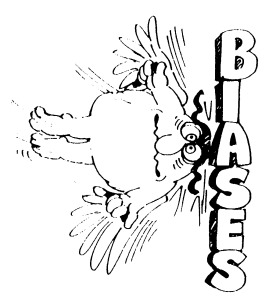 The level of misunderstanding can have different strengths too. It can be an awkward moment where what is said just leaves the character feeling a bit uncomfortable, but it’s no big deal. Well, at least not until that moment is built on by more awkward moments… If you really want the stress level to be elevated, it can be a situation which creates serious tension, has destructive ramifications and which leads, inevitably, to a crisis which must be addressed. You can start with small issues to lead up to the climax in your story. Let the distrust, hurt and animosity slowly grow. Alternatively, in a positive setting, you can use the same principles to slowly gain trust, allow bonding and have the characters working together cohesively against a common enemy.
The level of misunderstanding can have different strengths too. It can be an awkward moment where what is said just leaves the character feeling a bit uncomfortable, but it’s no big deal. Well, at least not until that moment is built on by more awkward moments… If you really want the stress level to be elevated, it can be a situation which creates serious tension, has destructive ramifications and which leads, inevitably, to a crisis which must be addressed. You can start with small issues to lead up to the climax in your story. Let the distrust, hurt and animosity slowly grow. Alternatively, in a positive setting, you can use the same principles to slowly gain trust, allow bonding and have the characters working together cohesively against a common enemy.
Have a look around you at the plot techniques you see used in books, movies and on television. Also have a look at how you see the people in your life acting which moves them forward or slides them backwards into a poor behaviour patterns. The trick of learning about how human behaviour functions is to be an observer. Sometimes the obvious to others is a complete mystery to someone who is fearful, hurting, tired or confused. As an author, you can subtly or overtly manoeuvre what is said and interpreted in any way you please. The possibilities are limitless.
 This chapter is a free excerpt from “Creating and Resolving Conflict in Fiction,” which dissects conflict into its component parts and helps you generate conflict plot-lines and themes, which will add richness and realism to your work. The principles apply to any genre of fiction, or character relationship. It will assist you in creating personality traits and behaviour patterns which make your characters realistic, unique and believable.
This chapter is a free excerpt from “Creating and Resolving Conflict in Fiction,” which dissects conflict into its component parts and helps you generate conflict plot-lines and themes, which will add richness and realism to your work. The principles apply to any genre of fiction, or character relationship. It will assist you in creating personality traits and behaviour patterns which make your characters realistic, unique and believable.
Please, no re-blogs of this post!
This article / blog post is Copyright Cate Russell-Cole 2012. All rights are reserved Internationally. You may not reproduce it in any form, in part of whole, without Cate’s prior written permission. That includes usage in forms such as print, audio and digital imaging including pdf, jpg, png etc. A fee may be requested for re-using her work if it is for a commercial venture. Link sharing and Pinterest pins are most welcome as long as Cate is the attributed Author.
Filed under: Writing Tagged: characterisation, communication, conflict, fiction, goals, ideas, Indie publishing, inspiration, motivation, passion, plot, problem solving, psychology, resource, success, writer, writing








June 2, 2013
Valuing Stories
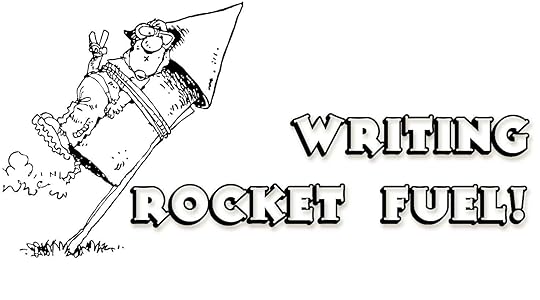 “If stories come to you, care for them. And learn to give them away where they are needed. Sometimes a person needs a story more than food to stay alive.” Barry Lopez, in Crow and Weasel
“If stories come to you, care for them. And learn to give them away where they are needed. Sometimes a person needs a story more than food to stay alive.” Barry Lopez, in Crow and Weasel
“Australian Aborigines say that the big stories—the stories worth telling and retelling, the ones in which you may find the meaning of your life—are forever stalking the right teller, sniffing and tracking like predators hunting their prey in the bush.” Robert Moss, Dreamgates
“Stories live in your blood and bones, follow the seasons and light candles on the darkest night-every storyteller knows she or he is also a teacher…” Patti Davis
“Stories are how we learn. The progenitors of the world’s religions understood this, handing down our great myths and legends from generation to generation.” Bill Mooney and David Holt, The Storyteller’s Guide
“I wanted a perfect ending. Now I’ve learned, the hard way, that some poems don’t rhyme, and some stories don’t have a clear beginning, middle, and end. Life is about not knowing, having to change, taking the moment and making the best of it, without knowing what’s going to happen next.” Delicious Ambiguity, Gilda Radner
Filed under: Rocket Fuel Tagged: Writing Rocket Fuel








Writing Rocket Fuel: Valuing Stories
 “If stories come to you, care for them. And learn to give them away where they are needed. Sometimes a person needs a story more than food to stay alive.” Barry Lopez, in Crow and Weasel
“If stories come to you, care for them. And learn to give them away where they are needed. Sometimes a person needs a story more than food to stay alive.” Barry Lopez, in Crow and Weasel
“Australian Aborigines say that the big stories—the stories worth telling and retelling, the ones in which you may find the meaning of your life—are forever stalking the right teller, sniffing and tracking like predators hunting their prey in the bush.” Robert Moss, Dreamgates
“Stories live in your blood and bones, follow the seasons and light candles on the darkest night-every storyteller knows she or he is also a teacher…” Patti Davis
“Stories are how we learn. The progenitors of the world’s religions understood this, handing down our great myths and legends from generation to generation.” Bill Mooney and David Holt, The Storyteller’s Guide
“I wanted a perfect ending. Now I’ve learned, the hard way, that some poems don’t rhyme, and some stories don’t have a clear beginning, middle, and end. Life is about not knowing, having to change, taking the moment and making the best of it, without knowing what’s going to happen next.” Delicious Ambiguity, Gilda Radner
Filed under: Rocket Fuel Tagged: Writing Rocket Fuel








June 1, 2013
Your Online Life is as Permanent as a Tattoo...
This intrigues me, scares me and to a degree, inspires me to leave a better digital tattoo out there in the world.
To fear or to deliver hope: which will you choose?
If you are building a following as an author and want to look professional, you need to watch what you say. Be especially wary of negative or personal comments left on social media or others' blogs. Google does log comments in its engine. Nothing is missed and it can potentially come back at you, or your children, years later.
This is sobering food for thought.
May 30, 2013
Support an Author Month: Shyness in the Marketplace

If you would rather devote your energy to writing than struggle to promote yourself, risking being openly criticised, this is for you. As someone who hates reviews, would rather read posts than comment and abhors bombing social media streams with book promotion, it touched me. I am nodding my head and agreeing: all I want is for my work to touch someone and resonate with them.
Just after the Boston Marathon bombing, writer and musician Amanda Palmer gave this talk on writers, shyness, the “wild west” of the Internet marketplace. It is a poignant finale to Support an Author Month. You don’t have to be formally recognised for your work to have value; and that should never detract from your joy in being a writer.
Go shout down to your marketplace and do it with pride.
Amanda, thank you.
Amanda Palmer on the Muse in the Marketplace

My apologies for being unable to embed this video. It’s a WordPress thing.
Filed under: "Dose of Inspiration" Video, Events, Support An Author Month, Writing Tagged: Amanda Palmer, author, blog, blogging, courage, creativity, encouragement, Grub Street, identity, Indie publishing, inspiration, marketing, passion, poetry, promotion, self esteem, shyness, support, survival, value, writer, writing








May 28, 2013
Stubbornness: the Writer’s Super Power

Stubborn means you can securely stick with it!
You never hear the word stubborn used in a positive context; however, without it, you are sunk as a writer. It is one of those character traits that gets constant bad press, but is essential to survival in any tough situation.
Thesaurus.com lists stubborn this way: “adamant, bullheaded, determined, firm, fixed, hardheaded, headstrong, inflexible, intractable, obstinate, opinionated, persevering, persistent, relentless, rigid, self-willed, single-minded, steadfast, tenacious, tough, unbending, unshakable, wilful.”
Ouch! It’s the same as saying that ‘stubborn’ is made up of two four-letter words, strung together to create an obscenity. However, look at the gems that are in there: determined, persistent, steadfast, persevering. Plus in the face of trolls, cynicism, rejections and opinionated reviews, isn’t it better to be firm, fixed, single-minded and tenacious? Those are qualities which will stop you from abandoning your goals or giving in to those who have no right to a final say on your value.
Being too rigid and bullheaded may not be a character asset in every aspect of life, when used to empower your creative work, being obstinate can certainly have it’s benefits. So if you have a stubborn streak, when the road to success gets rough, wear it proudly. It will get you where complacent, compliant and yielding can never take you.

This article / blog post is Copyright Cate Russell-Cole 2013. All rights are reserved Internationally. You may not reproduce it in any form, in part of whole, without Cate’s prior written permission. That includes usage in forms such as print, audio and digital imaging including pdf, jpg, png etc. A fee may be requested for re-using her work if it is for a commercial venture. Link sharing and Pinterest pins are most welcome as long as Cate is the attributed Author.
The pin image is also Copyright Cate Russell-Cole 2013. No images on this blog may be copied, captured, or altered for your own purpose without the consent of the originating owner.
Filed under: Writing Tagged: author, blog, blogging, challenge, conflict, creativity, criticism, encouragement, goals, growth, Indie publishing, inspiration, motivation, passion, publishing, stubborn, success, super power, support, trolls, writer, writing








May 27, 2013
Support An Author Month: How to Write A Book Review
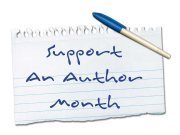 Until recently, I hesitated to write reviews for books as I didn’t know how. Most of the information you get off the Internet is about F.o.r.m.a.l. college-type reviews, technical journals and things that scare my hair off. They look like an awful lot of work!
Until recently, I hesitated to write reviews for books as I didn’t know how. Most of the information you get off the Internet is about F.o.r.m.a.l. college-type reviews, technical journals and things that scare my hair off. They look like an awful lot of work!
So to save us all, I have “borrowed,” and slightly modified these awesome tips. They are user-friendly. So please, write a book review this week… unless you hate the book. In that case, just walk away quietly and leave the world a more peaceful place.
The source of the wisdom below is http://slashdot.org/faq/bookreviews.shtml I took out the negative parts of writing a critique, as this is support, not tear apart, month!
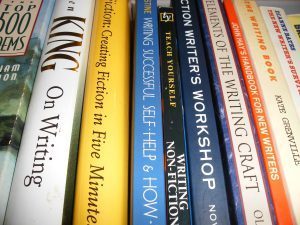 Did you like previous works from the same author or series?
Did you like previous works from the same author or series?Where and when does the story take place?
Is this book part of a series?
Is there an identifiable central conflict, or a complex of conflicts?
What is the tone and style? Is it frightening? Clinical? Amusing? Scattered?
Do you like the characters? What about them makes them believable, dynamic or static?
From whose viewpoint is the story told, and how does that affect the narrative?
Does the book remind you of others by the same author, or in the same genre?
Do any twists particularly inspire? (Don’t give away too much, of course.)
If you really have to, don’t ‘pan’ a book without specifying your context and expectations. I did ask you nicely not to though, so please, walk away…
If you can add more suggestions, please do in the comments below. Plus, as one commenter pointed out, if someone asks you to write a review, don’t say that in the review! It looks rigged.
Happy reading and thank you for the positive feedback, generous shares and goodwill Support an Author Month has attracted. It will be back in 2014.

Please do not reblog this post.
The suggestions in this blog post are Copyright Slashdot.org. Only a very small part of their entire page has been reproduced here. (It is massive.)
“Slashdot welcomes readers’ book reviews. In particular, we’re interested in reviews of books on programming, computer security, the history of technology and anything else (including Science Fiction, cyberpunk, etc.) that fits under the “News for Nerds” umbrella.” http://slashdot.org
Filed under: Writing Tagged: author, blogging, book review, books, creativity, encouragement, growth, ideas, Indie publishing, inspiration, resource, success, support, writer, writing












